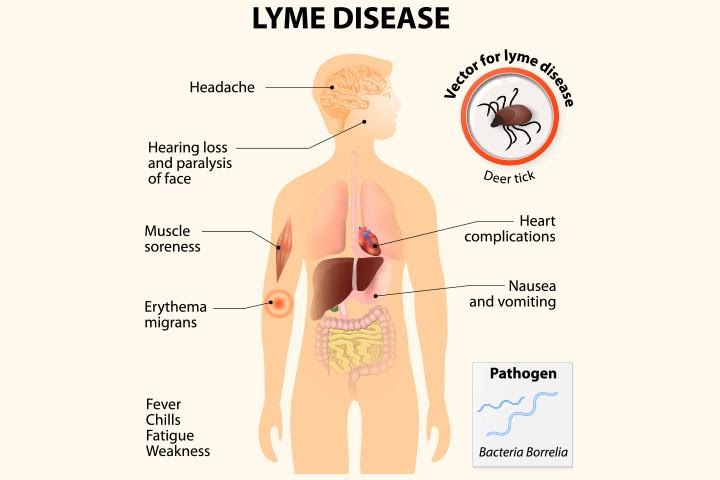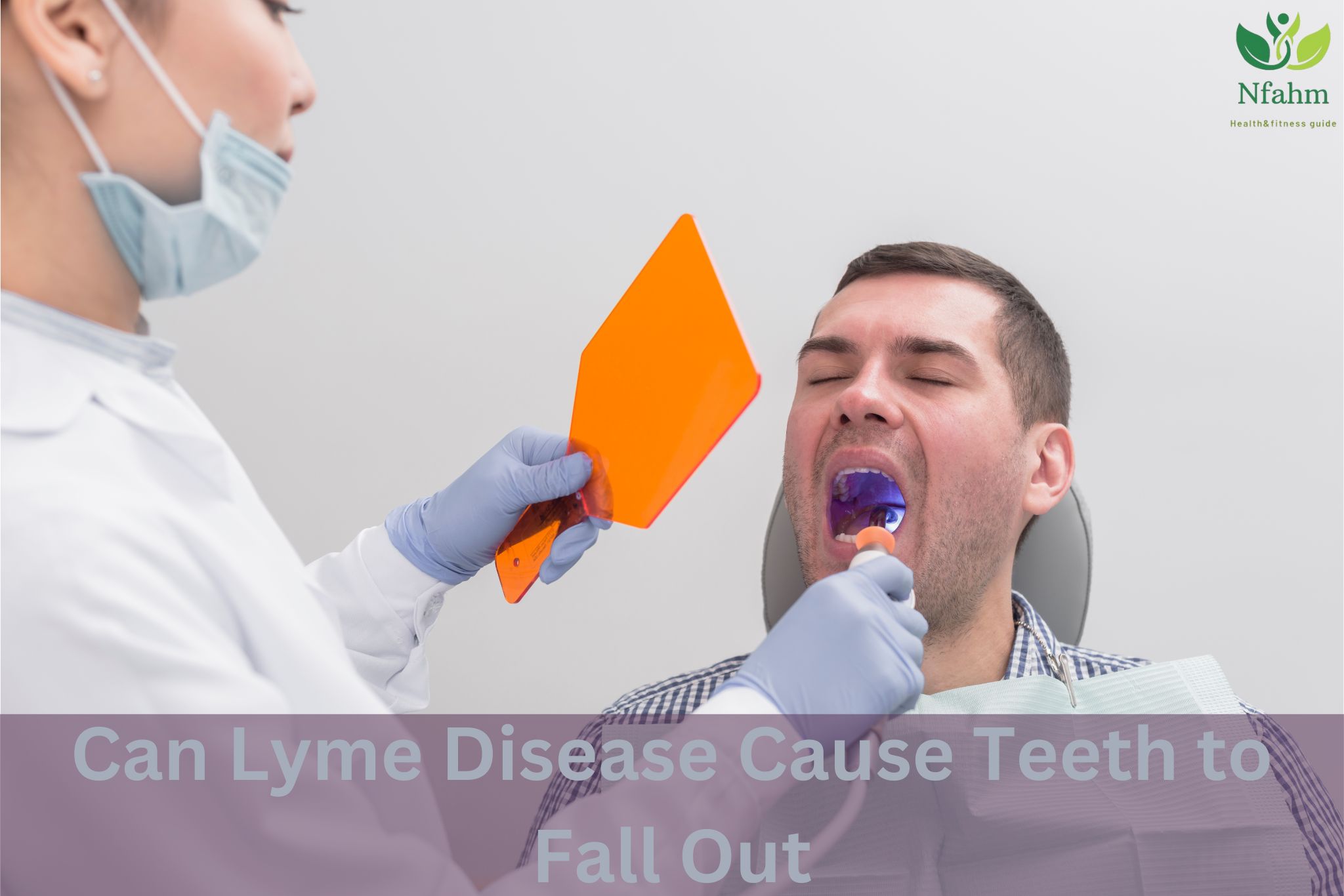Understanding Lyme Disease:
Lyme disease is a complex tick-borne illness caused by the bacterium Borrelia burgdorferi. Predominantly transmitted through the bite of an infected black-legged tick, also known as:
- A deer tick
- Lyme disease can manifest a range of symptoms from mild to severe.
Early signs often include fever, headache, fatigue, and a characteristic skin rash called erythema migrans.
If not diagnosed and treated promptly with
- antibiotics,
- the infection can spread to joints,
- the heart, and the nervous system,
- leading to more serious health issues.
Understanding can Lyme disease cause teeth to fall out.
Lyme Disease and Oral Health:
Direct correlations between Lyme disease and dental health, including tooth loss, have not been scientifically established.
However, Lyme disease can lead to several indirect issues that may affect oral health. Patients suffering from Lyme disease often experience chronic fatigue and facial nerve paralysis
Which can hinder regular oral hygiene practices such as:
- Brushing
- Flossing.
Additionally, some medications used in the treatment of Lyme disease
may have side effects that impact oral health, including dry mouth, which can increase the risk of cavities and gum disease.
Patients with Lyme disease need to maintain a routine of good oral hygiene and consult their healthcare providers about any concerns regarding their oral health.
Lyme Disease and Teeth Loss:

While direct evidence linking Lyme disease to teeth loss is scarce, it’s critical to understand the potential indirect pathways through which Lyme disease may contribute to deteriorating dental health.
For instance, long-term effects of the disease, such as arthritis and chronic pain, may make regular dental care challenging, leading to neglect and eventual dental issues.
Additionally, Lyme disease’s impact on the immune system could theoretically predispose individuals to periodontal disease, a leading cause of tooth loss in adults.
Nonetheless, more research is needed to clearly define any direct connection between Lyme disease and tooth loss.
Maintaining open communication with healthcare professionals about Lyme disease symptoms and their management, including any impacts on oral health, is essential for patients.
Preventive Measures for Teeth Loss:

To mitigate the risk of teeth loss, especially for individuals dealing with Lyme disease or other health conditions that may indirectly affect oral health, adopting comprehensive preventative measures is crucial.
First and foremost, maintaining a rigorous oral hygiene routine is essential. This includes brushing your teeth at least twice a day with fluoride toothpaste, flossing daily to remove plaque from areas your brush can’t reach, and using an antimicrobial mouthwash to help reduce bacteria that can lead to gum disease.
Regular dental check-ups and cleanings are also vital, as they can help catch and address potential dental issues early before they escalate to tooth loss.
Additionally, lifestyle choices such as:
- A balanced diet low in sugar
- Avoiding tobacco products
- Limiting alcohol consumption can significantly reduce the risk of periodontal disease
- Subsequently
- Teeth loss
For those with Lyme disease, consulting with both healthcare and dental care providers about the best practices for oral hygiene given specific treatment plans can optimize oral health outcomes.
Dealing with Teeth Loss:
Dealing with teeth loss can be a challenging and emotional process for many individuals, impacting not only their oral health but also their self-esteem and quality of life.
The good news is that there are several effective ways to manage and address teeth loss. Dental implants, bridges, and dentures are among the most common solutions that can help restore functionality and appearance.
It’s important to consult with a dental professional to explore the best option based on the specific situation, overall health, and personal preferences.
Engaging with support groups and counseling services can also be beneficial for coping with the emotional aspects of teeth loss. Additionally, continuing to prioritize oral hygiene and regular dental visits is critical for maintaining the health of the remaining teeth and gums.
Conclusion:
In summary, while Lyme disease directly causing tooth loss has not been scientifically proven, the indirect effects of the disease and its treatment can pose risks to dental health.
It is crucial for individuals with Lyme disease
- To uphold diligent oral hygiene practices,
- Seek regular dental care,
- Communicate openly with healthcare providers about their condition.
By doing so:
- They can mitigate the potential impacts of Lyme disease on oral health
- Including reducing the risk of tooth loss.

